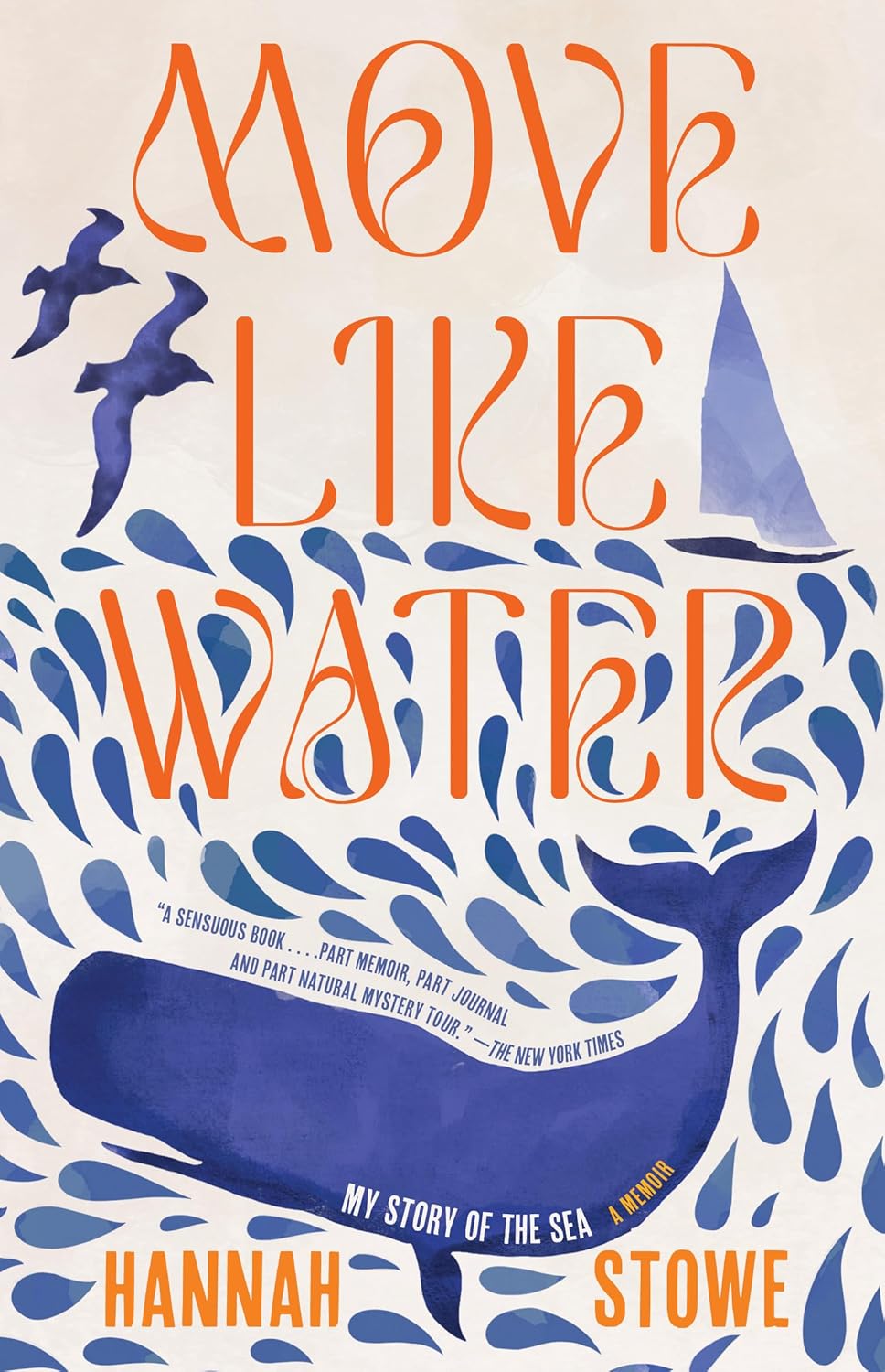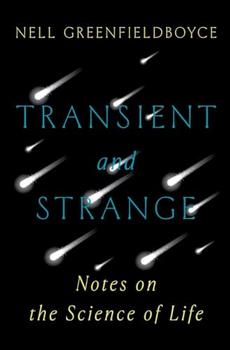Summary | Excerpt | Reviews | Beyond the book | Read-Alikes | Genres & Themes | Author Bio

My Story of the Sea
by Hannah StoweAs a child growing up on the Pembrokeshire Coast in Wales, Hannah Stowe always loved the sea, learning to swim at the same time she learned to walk and falling asleep to the rhythm of a nearby lighthouse's beacon as it swept across her bedroom. In her teens and twenties, she sailed aboard research vessels studying whales while earning her marine biology degree from Plymouth University. Her debut book, Move Like Water, chronicles her remarkable life journey and her unwavering passion for the ocean and the creatures that rely on it.
I find it hard to classify this extraordinary book. Much of it falls squarely into memoir, as the author narrates her life's story. Her experiences on the open ocean are absorbing, and her ability to conquer the hurdles in her way is inspiring, making this one of the more interesting memoirs I've encountered. Much of it, though, reads like an essay on marine life and ecology, and the author's ability to seamlessly interweave stories about the creatures she's encountered is impressive. At a low point in her life, for example, she dreams about an albatross. Throughout the ensuing chapter, which concerns the purchase of her first sailboat, she returns repeatedly to the lifecycle of this fascinating bird, at times comparing her own experiences to that of her subject ("I myself was once again preparing to leave my maternal nest"). She knowledgeably and lovingly describes each animal's unique features as well as the challenges humans pose to their ongoing survival.
Stowe's prose is dazzling throughout, beautifully poetic while simultaneously creating an atmosphere one can practically feel:
There was never a time when I did not know the sea. As I lay in my cradle at my mother's feet, day after day, the salt wind blew around our home. It mingled with the honeysuckle that curled around her garden studio, sweet-scented and dappling light as she coaxed gentle worlds to paper with paint…A hushed roar, water on sand and stone as the tides ebbed and flowed, both rhythm and rhyme.
The overall tone of the book is elegiac, the author often expressing a wistful longing to be back on the water during the times in her life when she is separated from the environment that is so central to her being. Even as she highlights the marine life she so admires, a note of sadness creeps in when she comments on the fragility of its existence.
There are a few passages where the author steps away from her beautifully poetic prose to discuss the minutiae of sailing or biology, and these sections do come across as overly technical for the layperson ("[The sailboats] are all Bermudan rigged, with a triangular mainsail running up the mast from tack to head, the clew out on the end of the boom. Both Song and Balaena had a staysail up forwards, and all three a genoa on a furler."). Fortunately, these paragraphs don't appear often, and can easily be skipped or googled for those disinterested in or unfamiliar with the subject.
The book also feels a little unfinished; Stowe's ultimate goal is to undertake a transatlantic journey by sailboat, but she is sidelined by injury and this aspiration remains unmet. In addition, her narrative contains gaps, making her story seem episodic and adding to the reader's impression that the memoir is incomplete (for example, she mentions buying a boat with her partner Henry, but we're not informed when he came into the picture – he's just suddenly there).
Those minor complaints aside, Move Like Water is a gem of a book – a must-read for anyone interested in the sea or marine life, and highly recommended for those who enjoy top-notch memoirs. Stowe's exquisite prose makes this a book to be savored.
![]() This review was originally published in The BookBrowse Review in September 2023, and has been updated for the
July 2025 edition.
Click here to go to this issue.
This review was originally published in The BookBrowse Review in September 2023, and has been updated for the
July 2025 edition.
Click here to go to this issue.

If you liked Move Like Water, try these:

by Jessica J. Lee
Published 2025
A prize-winning memoirist and nature writer turns to the lives of plants entangled in our human world to explore belonging, displacement, identity, and the truths of our shared future

by Nell Greenfieldboyce
Published 2024
An astonishing debut from the beloved NPR science correspondent: intimate essays about the intersection of science and everyday life.
Your guide toexceptional books
BookBrowse seeks out and recommends the best in contemporary fiction and nonfiction—books that not only engage and entertain but also deepen our understanding of ourselves and the world around us.